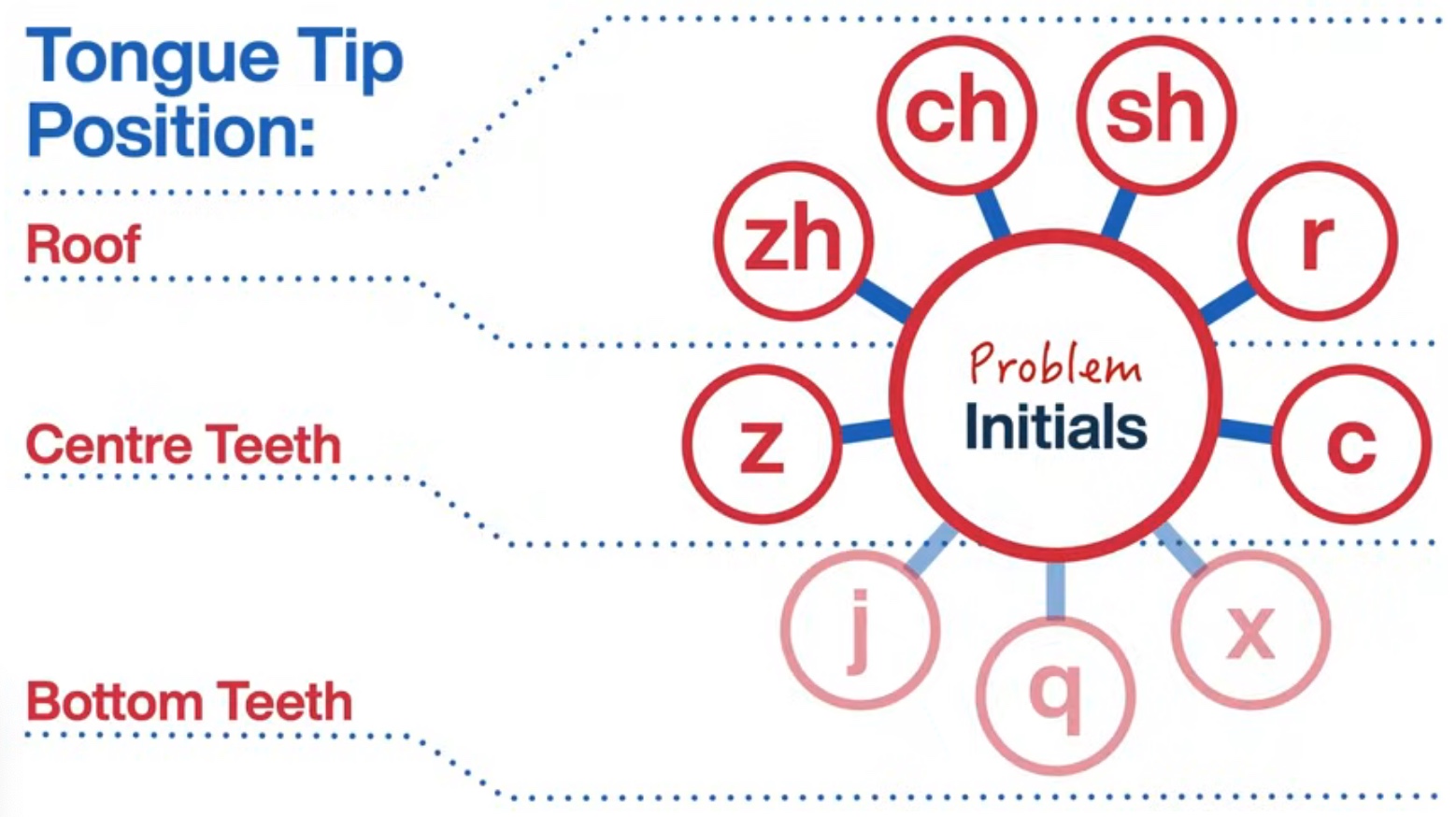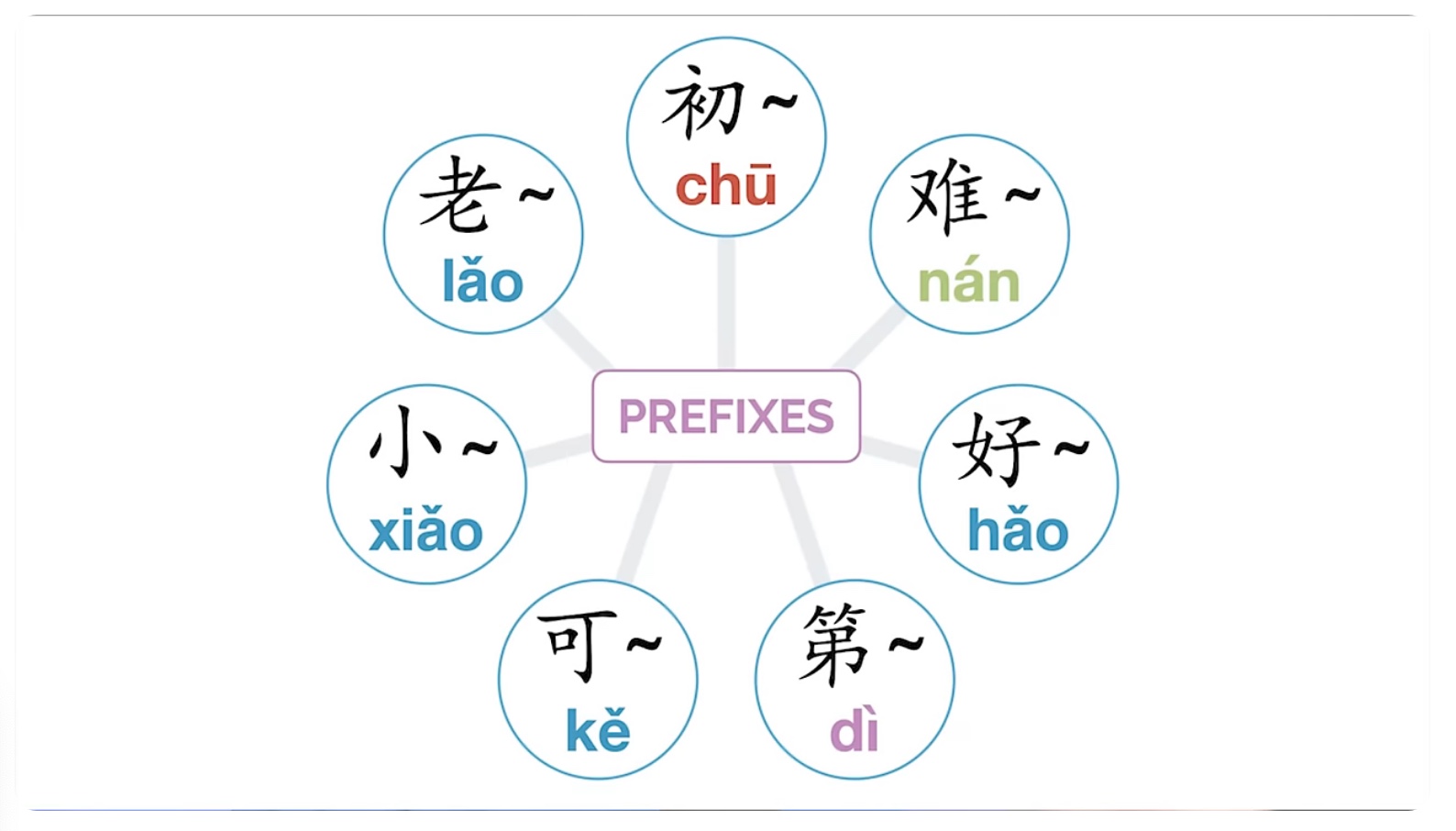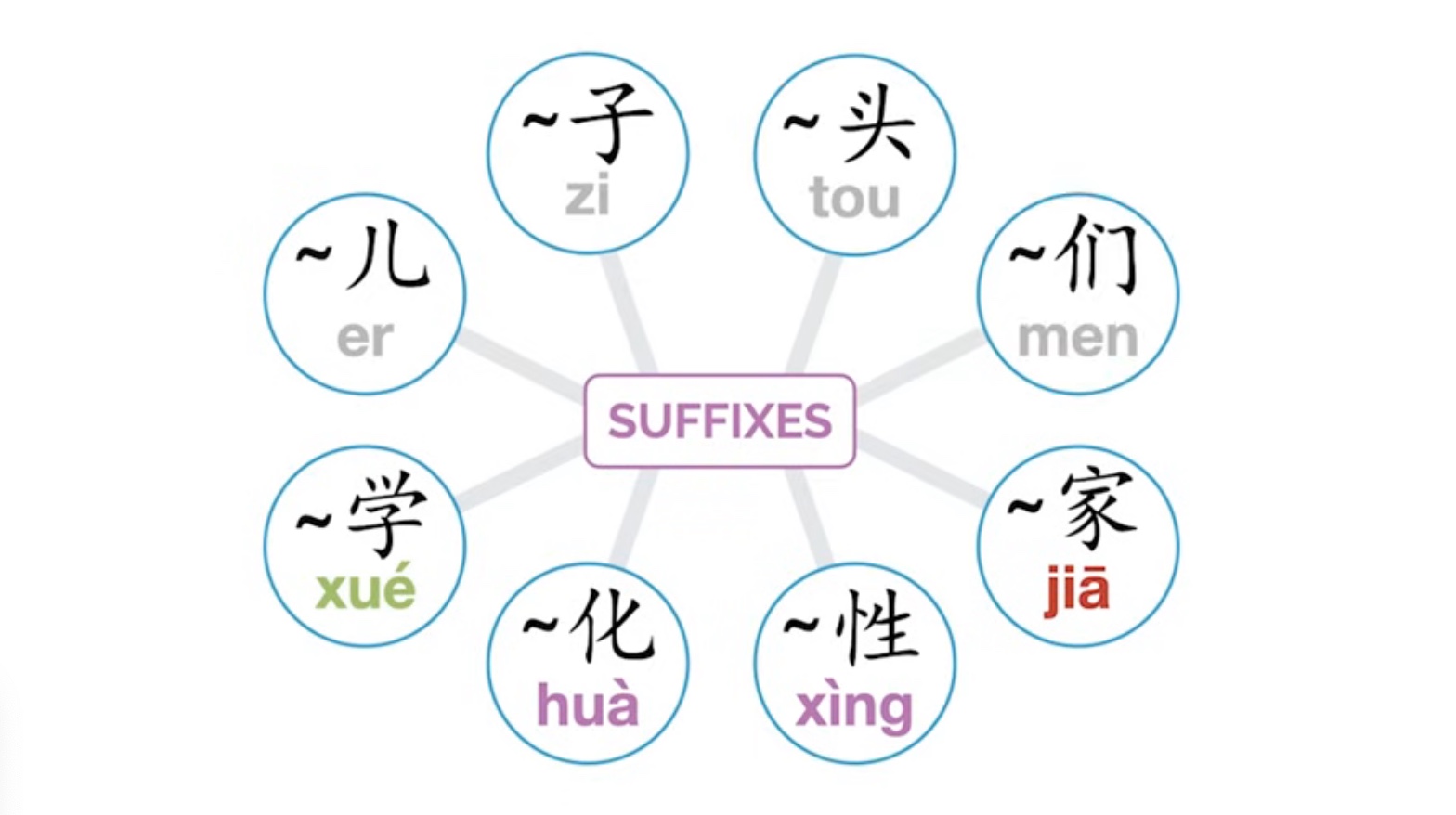Tones: Tones and pronounciation
Tones, tongue position
Vocal range
1st = hightest natural tone
2nd = mid to highest
3rd = mid to low to mid (zombie saying ‘brains’)
4th = highest to lowest (telling dog no)
Tones
b, d, g = softer than English, like beatboxing
t, p, k = more breathy than English
Tongue position
zh, ch, sh, r = roof of mouth
z, c = centre teeth
j, q, x = behind bottom teeth

Prefixes - 6 primary prefixes*
7th is ‘初’ but only used for zodiac calendar

老
Old
For familiarity or seniority
老婆 wife
老外 foreigner
小
Young
小猫 kitten
小狗 puppy
好 and 难
Good and bad
好看 pretty
难看 ugly
好吃 delicious
难吃 gross/not delicious
可
Adds ~able
可爱 lovable/cute
可笑 laughable
第
Makes numbers ordinal
第一 first
第二十 twentieth
Infixes
得 and 不
Used between verb and result to indicate if that verb can be
achieved
Not used with all verbs but used with common ones
听懂 to understand through listening
- 听得懂 Can understand/understandable
- 听不懂 Not understandable
吃完 finish eating
- 吃得完 can finish eating
- 吃不完 cannot finish eating
Suffixes
Characters attaxhed to ends of words or compounds to give different
meaning

儿
Makes word more casual
那儿 where
玩儿 to have fun
子
Makes nouns
鞋子 shoes
骗 -> 骗子 to cheat -> cheater
头
Makes nouns (fifth tone)
舌头 tongue
骨头 bone in body
尽头 end of something, typically directions
们
Plural for humans
我们 we
朋友们 friends
孩子们 children
邻居们 neighbours
家
Indicates expert in field
艺术 -> 艺术家 art -> artist
作家 writer
科学家 scientist
性
Adds ~iety, ~ness, ~ism, ~ship, or ~ence to create nouns
可能 -> 可能性 possible -> possibility
真实 -> 真实性 validity -> valiidity
化
Adds ~ize or ~ify to create nouns
进 -> 进化 move forward or enter -> evolve
简单 -> 简单化 simple -> to simplify
学
Adds ~istory or ~ology to create nouns
社会 -> 社会学 society -> sociology
Subject predicate examples
地震 (ground + vibrate) = earthquake
年轻 (year + light) = young
眼熟 (eyes + familiar) = familiar looking